|
Hark! The herald angels sing Hark! The herald angels sing, “Glory to the newborn King; Peace on earth, and mercy mild, God and sinners reconciled!” Joyful, all ye nations rise, join the triumph of the skies; With th’angelic host proclaim, “Christ is born in Bethlehem!” Hark! The herald angels sing, “Glory to the newborn King!” Christ, by highest heaven adored; Christ, the everlasting Lord; Late in time behold him come, offspring of a virgin’s womb. Veiled in flesh the Godhead see; hail th’incarnate Deity, Pleased with us in flesh to dwell, Jesus, our Emmanuel. Hark! The herald angels sing, “Glory to the newborn King!” Hail the heavenborn Prince of Peace! Hail the Sun of Righteousness! Light and life to all he brings, risen with healing in his wings. Mild he lays his glory by, born that we no more may die, Born to raise us from the earth, born to give us second birth. Hark! The herald angels sing, “Glory to the newborn King!” From John Wesley's Sermon - "Awake, Thou that Sleepest" 2. Now, "they that sleep, sleep in the night." The state of nature is a state of utter darkness; a state wherein "darkness covers the earth, and gross darkness the people." The poor unawakened sinner, how much knowledge soever he may have as to other things, has no knowledge of himself: in this respect "he knoweth nothing yet as he ought to know." he knows not that he is a fallen spirit, whose only business in the present world, is to recover from his fall, to regain that image of God wherein he was created. he sees no necessity for the one thing needful, even that inward universal change, that "birth from above," figured out by baptism, which is the beginning of that total renovation. that sanctification of spirit, soul, and body, "without which no man shall see the Lord." 3. Full of all diseases as he is, he fancies himself in perfect health. Fast bound in misery and iron, he dreams that he is at liberty. he says, "Peace! Peace!" while the devil, as "a strong, man armed," is in full possession of his soul. he sleeps on still and takes his rest, though hell is moved from beneath to meet him; though the pit from whence there is no return hath opened its mouth to swallow him up. A fire is kindled around him, yet he knoweth it not; yea, it burns him, yet he lays it not to heart. 4. By one who sleeps, we are, therefore, to understand (and would to God we might all understand it!) a sinner satisfied in his sins; contented to remain in his fallen state, to live and die without the image of God; one who is ignorant both of his disease, and of the only remedy for it; one who never was warned, or never regarded the warning voice of God, "to flee from the wrath to come;" one that never yet saw he was in danger of hell-fire, or cried out in the earnestness of his soul, "What must I do to be saved?" 5. If this sleeper be not outwardly vicious, his sleep is usually the deepest of all: whether he be of the Laodicean spirit, "neither cold nor hot," but a quiet, rational, inoffensive, good-natured professor of the religion of his fathers; or whether he be zealous and orthodox, and, "after the most straitest sect of our religion," live "a Pharisee;" that is, according to the scriptural account, one that justifies himself; one that labors to establish his own righteousness, as the ground of his acceptance with God. Rev. Meredith MillsSenior Pastor
0 Comments
"Be Happy, Love God"This Week's Wesley sermon is: Spiritual Worship. 1) Scripture: 1 John 5:1-5, 20 2) Getting to know God the Father, the Son and the Holy Spirit unlocks the love that God instilled in us. Sharing this love with others brings true happiness. 3) The pursuit of happiness is deeply embedded in our culture. It begins with the Declaration of Independence and presents itself in the arts, in music, in poetry and every other expression of our world. Check out the top 20 ‘Happy Songs’. Yep, I know you already have one or two going through your head right now. But what is happiness and how does it manifest itself in our lives? This Sunday, we'll be talking about happiness and how John and Charles Wesley pursued it. I will let you in on a secret – It all begins with God but then I need you to find true happiness. I cannot wait to see you on Sunday Rev. Suzi ByrdAssociate Pastor UM Hymnal #616 and #339 It took us a while but with this hymn we are entering the realm of 10+ stanza hymns. In fact, we are looking at 24 stanzas in the original publication. Why so many you ask? Well, it takes time to tell the story. The hymnal editor for the United Methodist Hymnal, Carlton Young, split up the stanzas and created two hymns because, and I do not have to tell you this, no Methodist church I have ever seen will actually sing a 24 stanza hymn. But, instead of cutting stanzas, the editor chose some for an invitation to become a disciple of Christ and some to celebrate Christ’s presence and grace in the Lord’s Supper. Please find below the original 24 stanzas. I highlighted them in green to reflect hymn # 339 intended to be an invitation and red for the communion hymn #616. I would encourage you to read the whole poem as it beautifully reflects the struggle of making disciples of Jesus Christ. Come, sinners, to the gospel feast, Let every soul be Jesu’s guest, You need not one be left behind, For God hath bidden all mankind. Sent by my Lord, on you I call, The invitation is to all, Come all the world; come, sinner, thou All things in Christ are ready now. Jesus to you His fullness brings, A feast of marrow and fat things: All, all in Christ is freely given, Pardon, and holiness, and heaven. Do not begin to make excuse, Ah! Do not you His grace refuse; Your worldly cares and pleasures leave, And take what Jesus hath to give. Your grounds forsake, your oxen quit, Your every earthly thought forget, Seek not the comforts of this life, Nor sell your savior for a wife. “Have me excused,” why will ye say? Why will ye for damnation pray? Have you excused – from joy and peace! Have you excused – from happiness: Excused from coming to a feast! Excused from being Jesus’s guest! From knowing now your sins forgiven, From tasting here the joys of heaven! Excused, alas! Why should you be From health, and life, and liberty, From entering into glorious rest, From leaning on your Saviour’s breast! Yet must I, Lord, to Thee complain, The world hath made thy offers vain; Too busy, or too happy they, They will not, Lord, Thy call obey. Go then, my angry Master said, Since these on all My mercies tread, Invite the rich and great no more, But preach My gospel to the poor. Confer not thou with flesh and blood, Go quickly forth, invite the crowd, Search every lane, and every street, And bring in all the souls you meet. Come then, ye souls by sin opprest, Ye restless wanderers after rest, Ye poor, and main’d, and halt, and blind, In Christ a hearty welcome find. Sinners my gracious Lord receives, Harlots, and publicans, and thieves; Drunkards, and all ye hellish crew, I have a message now to you. Come, and partake the gospel feast, Be saved from sin, in Jesus rest: O taste the goodness of our God, And eat his flesh, and drink His blood. ‘Tis done: my all-redeeming Lord, I have gone forth, and preach’d the word, The sinners to Thy feast are come, And yet, O Saviour, there is room. Go then, my Lord again enjoin’d And other wandering sinners find; Go to the hedges and highways, And offer all My pardoning grace. The worst unto My supper press, Monsters of daring wickedness, Tell them My grace for all is free, They cannot be too bad for Me. Tell them, their sins are all forgiven, Tell every creature under heaven I died to save them from all sin, And force the vagrants to come in. Ye vagrant souls, on you I call, (O that my voice could reach you all!) Ye all are freely justified, Ye all may live, for Christ hath died. My message as from God receive, Ye all may come to Christ, and live: O let His love your hearts constrain, Nor suffer Him to die in vain. His love is mighty to compel, His conquering love consent to feel; Yield to His love’s resistless power, And fight against your God no more! See Him set forth before your eyes, Behold the bleeding Sacrifice! His offer’d love make haste to’ embrace, And freely now be saved by grace. Ye who believe His record true Shall sup with Him, and He with you: Come to the feast; be saved from sin, For Jesus waits to take you in. This is the time, no more delay, This is the acceptable day, Come in, this moment, at His call, And live for Him who died for all. The text begins with an invitation to receive the grace of God in Jesus Christ followed by how one should do that. Charles describes the answers and excuses he must have gotten and complains to God about the people’s refusal to accept Jesus’ sacrifice for us. Jesus tells him to continue to invite all people, including the scum of the earth into a relationship with God. And so he goes and urgently invites us all to accept God’s steadfast and never ending love.
I wanted you to see the original intent of this hymn which has been somewhat lost in splitting it up and sticking it under the two different headers. Charles is urging us to invite others into the loving relationship with God that we are already experiencing. Why would we not want to share this with everyone on this earth? As we learn to live out our faith by doing all the good we can, by all the means we can, in all the ways we can, in all the places we can, at all the times we can, to all the people we can, as long as ever we can, we cannot forget to share that what we have with all, just as Charles describes it here with Jesus’ voice. Because this Sunday we will celebrate Communion we will sing #616 to the tune listed in the hymnal. You will notice that we will bring in the elements of communion (Bread and Juice) while we sing this hymn. I want to invite you to invite someone else to the ‘Gospel Feast’ this coming Sunday. Gottes Segen, Suzi Byrd From John Wesley's Sermon: "The Use of Money" 1. In order to see the ground and reason of this, consider, when the Possessor of heaven and earth brought you into being, and placed you in this world, he placed you here not as a proprietor, but a steward: As such he entrusted you, for a season, with goods of various kinds; but the sole property of these still rests in him, nor can be alienated from him. As you yourself are not your own, but his, such is, likewise, all that you enjoy. Such is your soul and your body, not your own, but God's. And so is your substance in particular. And he has told you, in the most clear and express terms, how you are to employ it for him, in such a manner, that it may be all an holy sacrifice, acceptable through Christ Jesus. And this light, easy service, he has promised to reward with an eternal weight of glory. 2. The directions which God has given us, touching the use of our worldly substance, may be comprised in the following particulars. If you desire to be a faithful and a wise steward, out of that portion of your Lord's goods which he has for the present lodged in your hands, but with the right of resuming whenever it pleases him, First, provide things needful for yourself; food to eat, raiment to put on, whatever nature moderately requires for preserving the body in health and strength. Secondly, provide these for your wife, your children, your servants, or any others who pertain to your household. If when this is done there be an overplus left, then "do good to them that are of the household of faith." If there be an overplus still, "as you have opportunity, do good unto all men." In so doing, you give all you can; nay, in a sound sense, all you have: For all that is laid out in this manner is really given to God. You "render unto God the things that are God's," not only by what you give to the poor, but also by that which you expend in providing things needful for yourself and your household. 3. If, then, a doubt should at any time arise in your mind concerning what you are going to expend, either on yourself or any part of your family, you have an easy way to remove it. Calmly and seriously inquire, "(1.) In expending this, am I acting according to my character? Am I acting herein, not as a proprietor, but as a steward of my Lord's goods? (2.) Am I doing this in obedience to his Word? In what Scripture does he require me so to do? (3.) Can I offer up this action, this expense, as a sacrifice to God through Jesus Christ? (4.) Have I reason to believe that for this very work I shall have a reward at the resurrection of the just?" You will seldom need anything more to remove any doubt which arises on this head; but by this four-fold consideration you will receive clear light as to the way wherein you should go. The hymn this week is: "Come, Sinners to the Gospel Feast" Come, sinners, to the gospel feast, Let every soul be Jesus’ guest. Ye need not one be left behind, For God hath bid all humankind. Do not begin to make excuse; Ah! Do not you his grace refuse; Your worldly cares and pleasures leave, And take what Jesus hath to give. Come and partake the gospel feast, Be saved from sin, in Jesus rest; O taste the goodness of our God, And eat his flesh and drink his blood. See him set forth before your eyes; Behold the bleeding sacrifice; His offered love make haste to embrace, And freely now be saved by grace. Ye who believe his record true Shall sup with him and he with you; Come to the feast, be saved from sin, For Jesus waits to take you in. The famous quote by John Wesley: Rev. Meredith MillsSenior Pastor From John Wesley's sermon, "The Almost Christian": 9. But, supposing you had, do good designs and good desires make a Christian? By no means, unless they are brought to good effect. "Hell is paved," saith one, "with good intentions." The great question of all, then, still remains. Is the love of God shed abroad in your heart? Can you cry out, "My God, and my All"? Do you desire nothing but him? Are you happy in God? Is he your glory, your delight, your crown of rejoicing? And is this commandment written in your heart, "That he who loveth God love his brother also"? Do you then love your neighbor as yourself? Do you love every man, even your enemies, even the enemies of God, as your own soul? as Christ loved you? Yea, dost thou believe that Christ loved thee, and gave himself for thee? Hast thou faith in his blood? Believest thou the Lamb of God hath taken away thy sins, and cast them as a stone into the depth of the sea? that he hath blotted out the handwriting that was against thee, taking it out of the way, nailing it to his cross? Hast thou indeed redemption through his blood, even the remission of thy sins? And doth his Spirit bear witness with thy spirit, that thou art a child of God? 10. The God and Father of our Lord Jesus Christ, who now standeth in the midst of us, knoweth, that if any man die without this faith and this love, good it were for him that he had never been born. Awake, then, thou that sleepest, and call upon thy God: call in the day when he may be found. Let him not rest, till he make his "goodness to pass before thee;" till he proclaim unto thee the name of the Lord, "The Lord, the Lord God, merciful and gracious, long-suffering, and abundant in goodness and truth, keeping mercy for thousands, forgiving iniquity, and transgression, and sin." Let no man persuade thee, by vain words, to rest short of this prize of thy high calling. But cry unto him day and night, who, "while we were without strength, died for the ungodly," until thou knowest in whom thou hast believed, and canst say, "My Lord, and my God!" Remember, "always to pray, and not to faint," till thou also canst lift up thy hand unto heaven, and declare to him that liveth for ever and ever, "Lord, Thou knowest all things, Thou knowest that I love Thee." 11. May we all thus experience what it is to be, not almost only; but altogether Christians; being justified freely by his grace, through the redemption that is in Jesus; knowing we have peace with God through Jesus Christ; rejoicing in hope of the glory of God; and having the love of God shed abroad in our hearts, by the Holy Ghost given unto us! Jesus, Lover of My Soul: 1 Jesus, lover of my soul, let me to thy bosom fly, while the nearer waters roll, while the tempest still is high; hide me, O my Savior, hide, till the storm of life is past; safe into the haven guide, O receive my soul at last! 2 Other refuge have I none; hangs my helpless soul on thee; leave, ah! leave me not alone, still support and comfort me. All my trust on thee is stayed, all my help from thee I bring; cover my defenseless head with the shadow of thy wing. 3 Plenteous grace with thee is found, grace to cover all my sin; let the healing streams abound; make and keep me pure within. Thou of life the fountain art; freely let me take of thee; spring thou up within my heart, rise to all eternity. Rev. Meredith MillsSenior Pastor Jesus, Lover of My Soul – Charles Wesley UM Hymnal #479 MARTYN We are only 4 weeks into our hymn blog and Charles is getting up close and personal. In fact, he wrote this hymn in 1740, probably shortly after his own conversion in October of 1738. The language is quite intimate, even for today, and in many ways, it feels more fitting in a service that celebrates the immanent God like our Encounter service. Originally the hymn was published under the title “In Temptation” in 5 stanzas as shown below but soon the 3rd stanza was left out and the United Methodist Hymnal contains stanzas 1,2,4 and 5. John Wesley did not include this hymn in any of his collections because he did not think it to be associate the divine Christ with words like lover or bosom. Charles, the poet, did not shy away from the close intimacy these words demonstrate. It is an interesting example of the affinity for the immanent God versus the transcendent God. 1 Jesus, lover of my soul, let me to thy bosom fly, while the nearer waters roll, while the tempest still is high: hide me, O my Savior, hide, 'til the storm of life is past; safe into the haven guide, O receive my soul at last! 2 Other refuge have I none, hangs my helpless soul on thee; leave, ah! leave me not alone, still support and comfort me! All my trust on thee is stayed, all my help from thee I bring; cover my defenseless head with the shadow of thy wing. 3 Wilt thou not regard my call? Wilt thou not accept my prayer? Lo! I sing, I faint, I fall! Lo, on thee I cast my care! Reach me out thy gracious hand! While I of thy strength receive, hoping against hope I stand, Dying, and behold I live! 4 Thou, O Christ, art all I want; more than all in thee I find: raise the fallen, cheer the faint, heal the sick, and lead the blind. Just and holy is thy name; I am all unrighteousness; false and full of sin I am, thou art full of truth and grace. 5 Plenteous grace with thee is found, grace to cover all my sin; let the healing streams abound; make and keep me pure within: thou of life the fountain art, freely let me take of thee; spring thou up within my heart, rise to all eternity. The text is probably based on the Wisdom literature “Wisdom of Solomon” that can be found in the Apocrypha[1]. “But thou sparest all, for they are thine, O lord, thou lover of souls”. The first stanza reminds me of a child running to a parent’s safety and I can only imagine what these words might have meant to anyone seeking protection from violence and persecution. The Wesley's were abolitionist and familiar with the pain or African slaves. It is God, our parent, always ready to receive us. As Wesley was a new convent, he was like a child staying close to the Father’s/Mother’s hand. The second stanza intensifies the image of protection seeker. Stanza three has been left out in most hymnals as it represents moments of doubts and yet it is that moment that endears the hymn to me. When we are in the pits, is it not there when we doubt the presence of God? Stanza four points to the ever-present feeling of unworthiness and guilt. By making himself that vulnerable, Charles’ words speak deeply to the souls who feel the same and are too ashamed to share it. The final stanza speaks to the ongoing sanctifying grace of God. As we invite Jesus into our hearts, the Holy Spirit is at work to bring the everlasting healing of our broken selves. No sin is too big, no burden too heavy, when we respond to the knocking Christ, our brokenness is being healed, day by day. There are several stories revolving around this hymn. I want to share story of the soldier in the American Civil War[2] who was about to shoot a picket from the other side when he heard him singing, ‘Cover my defenseless head/With the shadow of thy wing.'”[3] All this makes me think of how the appeal to others out of deep vulnerability makes us stronger and more loving. We need not only God but also one another in the healing of our brokenness. Originally, we had discussed to use the tune EASTER HYMN for this text because the tune that it is matched up with in the hymnal, ABERYSTWYTH, seems way too sad for a sending hymn. However, EASTER HYMN that you might all know as the triumphant tune to “Christ the Lord is Risen Today” does not match this intimate text. So, we looked for another tune and found one that might be less familiar but very singable. We look forward to singing together these amazing words which pour out of Charles Wesley’s heart. [1] The apocrypha are a set of texts included in the Latin Bible translation called Vulgate and the first Greek translation of the Hebrew Bible called Septuagint. However, these texts were not included in the Hebrew Bible. Catholic tradition includes these texts while Protestants do not. Luther did not translate anything from the Hebrew Bible that was not in the Hebrew text. Thus, Protestant bibles do not include the books within the Old Testament but have often included them in a separate section, usually called the Apocrypha. [2] www.umcdiscipleship.org/resources/history-of-hymns-jesus-lover-of-my-soul [3] Stanza two, last two lines. Rev. Suzi ByrdAssociate Pastor From John Wesley's Full Sermon called "The Means of Grace" Lyrics to: "A Charge to Keep I Have" (see Rev. Suzi Byrd commentary) A charge to keep I have, A God to glorify, A never-dying soul to save, And fit it for the sky. To serve the present age, My calling to fulfill: Oh, may it all my pow’rs engage To do my Master’s will! Arm me with jealous care, As in Thy sight to live; And O Thy servant, Lord, prepare A strict account to give! Help me to watch and pray, And on Thyself rely, Assured, if I my trust betray, I shall forever die. But are there any ordinances now, since life and immortality were brought to light by the gospel? Are there, under the Christian dispensation, any means ordained of God, as the usual channels of his grace? This question could never have been proposed in the apostolical church, unless by one who openly avowed himself to be a Heathen; the whole body of Christians being agreed, that Christ had ordained certain outward means, for conveying his grace into the souls of men. Their constant practice set this beyond all dispute; for so long as "all that believed were together, and had all things common," (Acts 2:44,) "they continued steadfastly in the teaching of the Apostles, and in the breaking of bread, and in prayers." (Acts 2:42.) But in process of time, when "the love of many waxed cold," some began to mistake the means for the end, and to place religion rather in doing those outward works, than in a heart renewed after the image of God. They forgot that "the end of" every "commandment is love, out of a pure heart," with "faith unfeigned;" the loving the Lord their God with all their heart, and their neighbor as themselves; and the being purified from pride, anger, and evil desire, by a "faith of the operation of God." Others seemed to imagine, that though religion did not principally consist in these outward means, yet there was something in them wherewith God was well pleased: something that would still make them acceptable in his sight, though they were not exact in the weightier matters of the law, in justice, mercy, and the love of God. In the following discourse, I propose to examine at large, whether there are any means of grace. By "means of grace" I understand outward signs, words, or actions, ordained of God, and appointed for this end, to be the ordinary channels whereby he might convey to men, preventing, justifying, or sanctifying grace. I use this expression, means of grace, because I know none better; and because it has been generally used in the Christian church for many ages; -- in particular by our own Church, which directs us to bless God both for the means of grace, and hope of glory; and teaches us, that a sacrament is "an outward sign of inward grace, and a means whereby we receive the same." The chief of these means are prayer, whether in secret or with the great congregation; searching the Scriptures; (which implies reading, hearing, and meditating thereon;) and receiving the Lord's Supper, eating bread and drinking wine in remembrance of Him: And these we believe to be ordained of God, as the ordinary channels of conveying his grace to the souls of men. Rev. Meredith MillsSenior Pastor A Charge to Keep I Have – Charles Wesley UM Hymnal #413 BOYLSTON I was not familiar with this hymn until recently. As I have been listening to Pastor Meredith’s sermons, I chuckle a little bit how the brothers Wesley seem to fall into the categories of believers she has been highlighting. This past Sunday she spoke about sanctifying and perfecting grace and how God through the Holy Spirit is constantly at work in us (if we open ourselves to God) to heal, restore and recreate us into what we were designed to be in the first place. Reading through the hymn below I can see both, the guilty and the overachiever! Do You see it? A charge to keep I have, a God to glorify, A never-dying soul to save, and fit it for the sky. To serve the present age, My calling to fulfill; O may it all my powers engage To do my Master’s will! Arm me with jealous care, As in thy sight to live, And oh, thy servant, Lord, prepare A strict account to give! Help me to watch and pray, And on thyself rely, Assured, if I my trust betray, I shall forever die. Both, John and Charles Wesley took every opportunity to convince their audience that God’s salvation is not one moment in time but an ongoing journey. I believe that their writings have not lost their power and even though the language is old, the contents is completely relatable today. In their recent book, Presidential Praise: Our Presidents and Their Hymns (Mercer University Press, 2008), authors C. Edward Spann and Michael E. Williams Sr. note that the title of President George W. Bush’s autobiography, A Charge to Keep, was drawn from Charles Wesley’s hymn. The choice of this title is but one indication of the role this hymn has played in the life of President Bush, as well as the influence of this hymn 250 years beyond its composition. [1] Originally, this hymn was published in 1762 as a two-stanza short meter[2] hymn under the title “Keep the charge of the Lord, that ye die not”. Charles liked to base his hymns on Scripture just like John based his sermons on scripture. In this case, Charles used Leviticus 8:35 “You shall remain at the entrance of the tent of meeting day and night for seven days, keep the Lord’s charge so that you do not die; for so I am commanded.” However, F. Hildebrandt and O. A. Beckerlegge tell us in their commentary on the 1780 collection that more than likely did Charles base his text on Matthew Henry’s Commentary on Leviticus. There are obvious similarities in both texts: ‘We have every one of us a charge to keep, An eternal God to glorify, an immortal soul to provide for, Needful duty to be done, our generation to serve; And it must be our daily care to keep this charge, for it is the charge of the Lord our Master, who will shortly call us to an account about it, and it is our peril if we neglect it. Keep it ‘that he die not’; it is death, eternal death, to betray the truth we are charged with.’ The beauty of Charles Wesley’s hymns is the ongoing narrative throughout the stanzas. I agonize over what stanzas to cut in a hymn because it feels likes cutting out some of the story and that feels like shortchanging those who sing the hymn. What if I leave out the stanza that helps them to hear God’s wooing? Stanza one states unambiguously what our call (charge) is – salvation! We are to love and submit to God and to prepare our souls for heaven. Stanza two states on how we are to fulfill that call – through service! Stanza three begins with a petition to God to help us to be faithful to servanthood and ends with a warning that judgment will come. The final stanza continues with a petition to the unnamed Holy Spirit to help us to stay on the path because otherwise there will be no reward. I can see you rolling your eyes because of the threatening tone of stanzas three and four and you are right to do that because it is indeed threatening. We can read this through the lens of guilt and shame and will not be able to see beyond the wall that goes up inside of us. Or, we could read this through the lens of compassion and empathy. It is indeed difficult to believe that God would love and restore us even though we seem to fail constantly in this thing called faith. Fear is a great motivator and it is very possible that Charles and John used fear to help others (and maybe even themselves) to repent (turn around) and fully open themselves to the work of the Holy Spirit inside of them. Fear works, we see that every day. But if we could give the thought of unconditional love a chance, we could realize that we are not alone in this; we are walking hand in hand with God and nothing can ever separate us from the love of God. Therefore, let us join the choir of angels who have spoken to humans and said: Fear not, our help comes from the Lord who made heaven and earth! Glory to God! Hallelujah! Amen! A quick word to the tune BOYLSTON. New England native Lowell Mason wrote this tune in 1832, seventy years after Charles wrote the hymn and on a different continent. This is another good example how the matching of a tune with a hymn may also be an interpretation of that hymn. The melody is modeled after the ancient psalm tones[3] giving the text the feel of scriptural wisdom. We will sing this melody, but I invite you to sing this hymn with the personal faith narrative Charles Wesley gave it. [1] www.umcdiscipleship.org/resources/history-of-hymns-a-charge-to-keep-i-have [2] Short meter refers to the number of syllables in each line. In this case 6.6.8.6 with rhymes in lines 1 and 3 and 2 and 4. [3] Psalm tones consists of a single pitch for monotony with the text, followed by a half cadence; a second pitch for monotoning, followed by an ending cadence. Rev. Suzi ByrdAssociate Pastor Key Points to Wesley's Sermon "The Great Privilege of Those Born Again" "Whosoever is born of God doth not commit sin." 1 John 3:9. 1. It has been frequently supposed, that the being born of God was all one with the being justified; that the new birth and justification were only different expressions, denoting the same thing: It being certain, on the one hand, that whoever is justified is also born of God; and, on the other, that whoever is born of God is also justified; yea, that both these gifts of God are given to every believer in one and the same moment. In one point of time his sins are blotted out, and he is born again of God. 2. But though it be allowed, that justification and the new birth are, in point of time, inseparable from each other, yet are they easily distinguished, as being not the same, but things of a widely different nature. Justification implies only a relative, the new birth a real, change. God in justifying us does something for us; in begetting us again, he does the work in us. The former changes our outward relation to God, so that of enemies we become children; by the latter our inmost souls are changed, so that of sinners we become saints. The one restores us to the favor, the other to the image, of God. The one is the taking away the guilt, the other the taking away the power, of sin: So that, although they are joined together in point of time, yet are they of wholly distinct natures. 3. The more any believer examines his own heart, the more will he be convinced of this: That faith working by love excludes both inward and outward sin from a soul watching unto prayer; that nevertheless we are even then liable to temptation, particularly to the sin that did easily beset us; that if the loving eye of the soul be steadily fixed on God, the temptation soon vanishes away: But if not, if we are _exelkomenoi_, (as the Apostle James speaks, James 1:14,) drawn out of God by our own desire, and _deleazomenoi_, caught by the bait of present or promised pleasure; then that desire, conceived in us, brings forth sin; and, having by that inward sin destroyed our faith, it casts us headlong into the snare of the devil, so that we may commit any outward sin whatever. 4. From what has been said, we may learn, Secondly, what the life of God in the soul of a believer is; wherein it properly consists; and what is immediately and necessarily implied therein. It immediately and necessarily implies the continual inspiration of God's Holy Spirit; God's breathing into the soul, and the soul's breathing back what it first receives from God; a continual action of God upon the soul, and a re-action of the soul upon God; an unceasing presence of God, the loving, pardoning God, manifested to the heart, and perceived by faith; and an unceasing return of love, praise, and prayer, offering up all the thoughts of our hearts, all the words of our tongues, all the works of our hands, all our body, soul, and spirit, to be a holy sacrifice, acceptable unto God in Christ Jesus. 5. And hence we may, Thirdly, infer the absolute necessity of this re-action of the soul, (whatever it be called,) in order to the continuance of the divine life therein. For it plainly appears, God does not continue to act upon the soul, unless the soul re-acts upon God. He prevents us indeed with the blessings of his goodness. He first loves us, and manifests himself unto us. While we are yet afar off, he calls us to himself, and shines upon our hearts. But if we do not then love him who first loved us; if we will not hearken to his voice; if we turn our eye away from him, and will not attend to the light which he pours upon us; his Spirit will not always strive: He will gradually withdraw, and leave us to the darkness of our own hearts. He will not continue to breathe into our soul, unless our soul breathes toward him again; unless our love, and prayer, and thanksgiving return to him, a sacrifice wherewith he is well pleased. Rev. Meredith MillsSenior Pastor Love Divine, All Loves Excelling – Charles Wesley UM Hymnal #384 As I was taking a quick look at hymnary.org (an amazing research database) I was not surprised to find that this hymn appears in 1635 hymnals. It is a testimony to the relevance of this text which speaks to many different people, regardless of their theological view, culture, race and/or age. Contemporary hymn and songwriters are rediscovering the old texts, and just like Rev. Meredith Mills is helping us to see the theological depth and relevance of John Wesley’s sermons, so are worship leaders and enliveners taken by the theology exposed in Charles Wesley’s hymns. Love divine, all loves excelling, Joy of heaven, to earth come down; Fix in us thy humble dwelling; All thy faithful mercies crown. Jesus, thou art all compassion, Pure, unbounded love thou art; Visit us with thy salvation, Enter every trembling heart. Breathe, O breathe thy loving Spirit Into every troubled breast. Let us all in thee inherit; Let us find that second rest. Take away our power of sinning: Alpha and Omega be; End of faith as its beginning. Set our hearts at liberty. Come, Almighty to deliver, Let us all thy life receive; Suddenly return and never, Nevermore thy temples leave. Thee we would be always blessing, Serve thee as thy hosts above, Pray and praise thee without ceasing. Glory in thy perfect love. Finish, then, thy new creation; Pure and sinless let us be. Let us see thy great salvation Perfectly restored in thee; Changed from glory into glory, Till in heaven we take our place, Till we cast our crowns before thee, Lost in wonder, love, and praise! The Companion to the United Methodist Hymnal informs us that this much beloved hymn first appeared in 1747 in Charles Wesley’s collection of Hymns for those that seek and those that have Redemption in the Blood of Jesus Christ. I think that is a rather lengthy title for a hymn collection, but it perfectly describes how Charles Wesley felt about salvation. Actually, he kind of made a poetic pun. Henry Purcell, British Composer (1659-95) set John Dryden’s poem to music for his opera King Arthur. Fairest Isle, all isles Excelling Seat of Pleasures and of Loves; Venus here will chuse her Dwelling, And forsake her Cyprian Groves. But that is truly more on a side note of knowledge that might come in handy when you want to impress at your next church musician luncheon. The hymn Love Divine, All Loves Excelling, printed above, has been undergone numerous editions due to the various ideas about Christian perfection. Wesleyan theology speaks of the transforming work of the Spirit in us as an ongoing journey, not a one-time event. As soon as we recognize and accept the love of God for us, God’s grace is at work in us to perfect us. The ordination vows every United Methodist ordained person makes contain that very belief – ‘Do you believe in being perfected in Christ Jesus?’ Many people can jump on board with the idea of God continuing to heal our brokenness through ongoing sanctifying grace but cannot believe that we could actually reach perfection, meaning pure love for God and neighbor. Charles Wesley, however, believed in Christian perfection and expresses this in every stanza. Stanza one is the beginning of the journey with God. Now, God journeys with us from before we have been born but due to free will we do not always accept and reciprocate God’s love. Stanza two goes more into detail about the Spirit’s work in us – to take away our power of sinning! This was a controversial view as well because of the notion that if God takes away our ‘power’ then we are no longer free willed people. John Wesley himself disliked the use of that word and simply omitted the whole stanza to avoid the subject. But, as in any Charles Wesley hymn, if we take stanzas out, we miss out on the whole story. Hymnal editors have replaced the word ‘power’ with the word ‘love’. Stanza three describes what Christian perfection looks like. Finally, stanza four brings the conclusion of why we want to strive for Christian perfection. Can there be a more desirable life than being perfectly restored in Christ? Not according to Charles Wesley. Yet, many hymnal editors have changed the word ‘sinless’ to ‘holy’, ‘unspotted’, or ‘spotless’. I think, when you read through this new lens of perfect love, you will no longer find it necessary to change Charles’ words. As I had mentioned in a previous blog entry, hymns and hymn tunes are written in a certain meter and hymns and tunes with the same meter are interchangeable. Our hymnal has printed the tune BEECHER with this hymn but also give the option of the tune HYFRYDOL. Although John Zundel wrote BEECHER for these words, I often choose HYFRDYDOL because I find it more fitting to the text. It also reminds me of the text that is also paired with HYFRYDOL and the promise of perfect love coming to earth in ‘Come Thou Long Expected Jesus’. (This is also a Charles Wesley hymn). Reading more about BEECHER I realize that the composer Zundel gave tempo instructions for the singing of the tune and they are much slower than I have ever heard it played or sung. We are to sing it in about one beat per second. For now, I think that I still prefer HYFRYDOL until I can truly unhear the fast and bouncy tempo of BEECHER. This Sunday we will sing this hymn to the tune of HYRYDOL. What does Christian perfection look like today? Can you imagine a life with only love for God and one another? Can you imagine no more division, no more hate, no more violence, no more pain? I think that today just like in Charles’ days, or Jesus’ days, or Moses’ days, or Abraham’s days humanity is broken and only the Grace of God will heal this brokenness and unite all of God’s creation in the most glorious celebration of a God of perfect love. I want to invite you to sing this hymn this Sunday with the vision of perfect love, and I too believe that our God is big enough to perfect us if surrender all and allow him to fully enter in. Rev. Suzi ByrdAssociate Pastor |
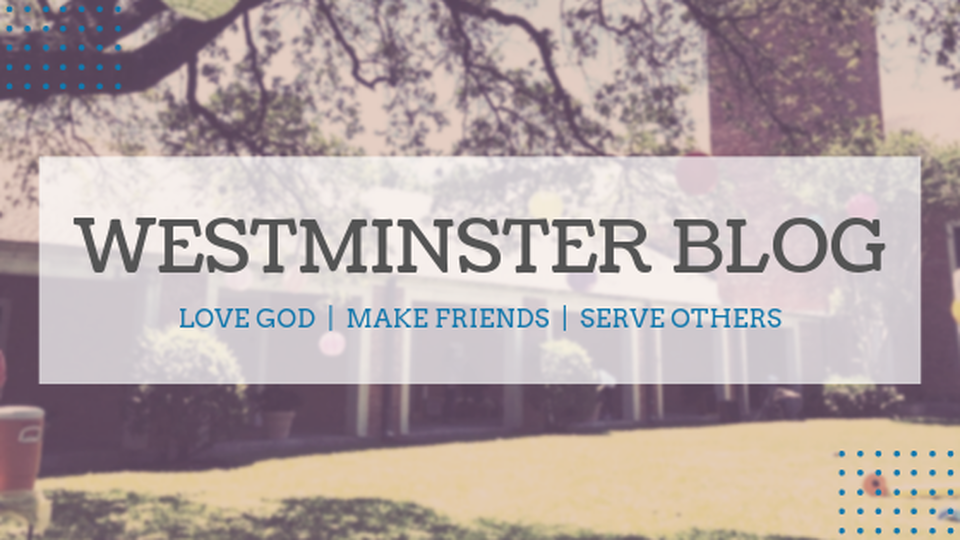
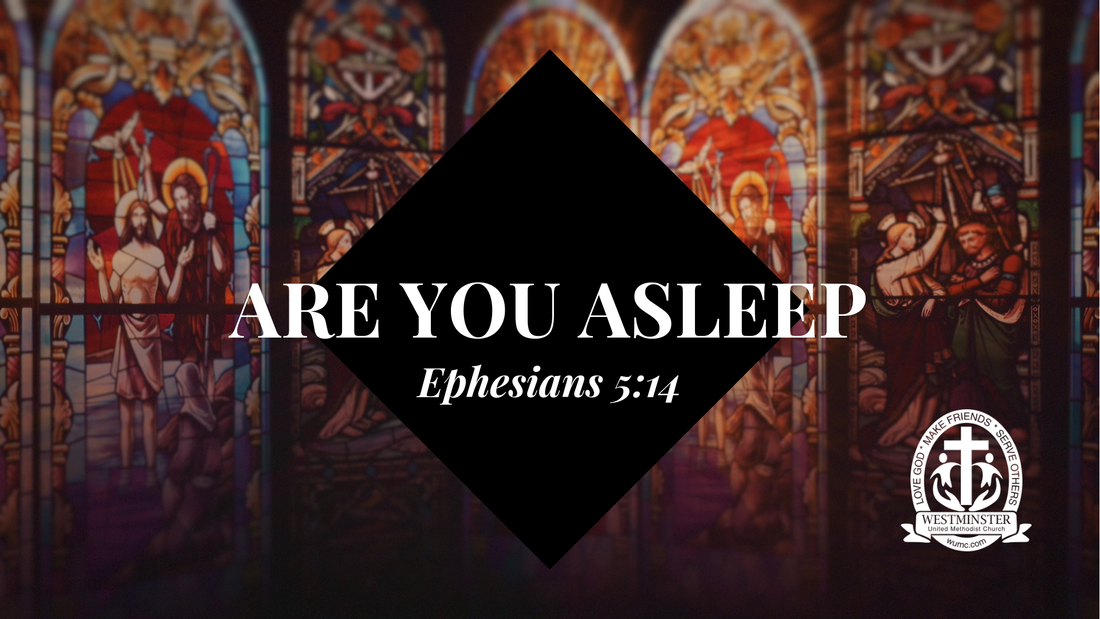
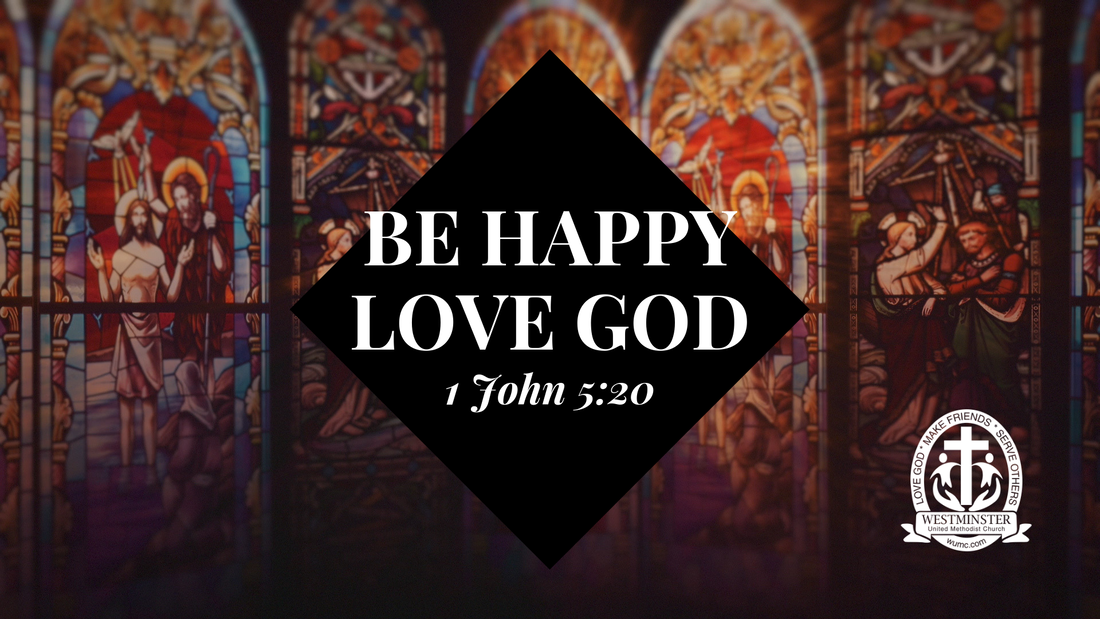
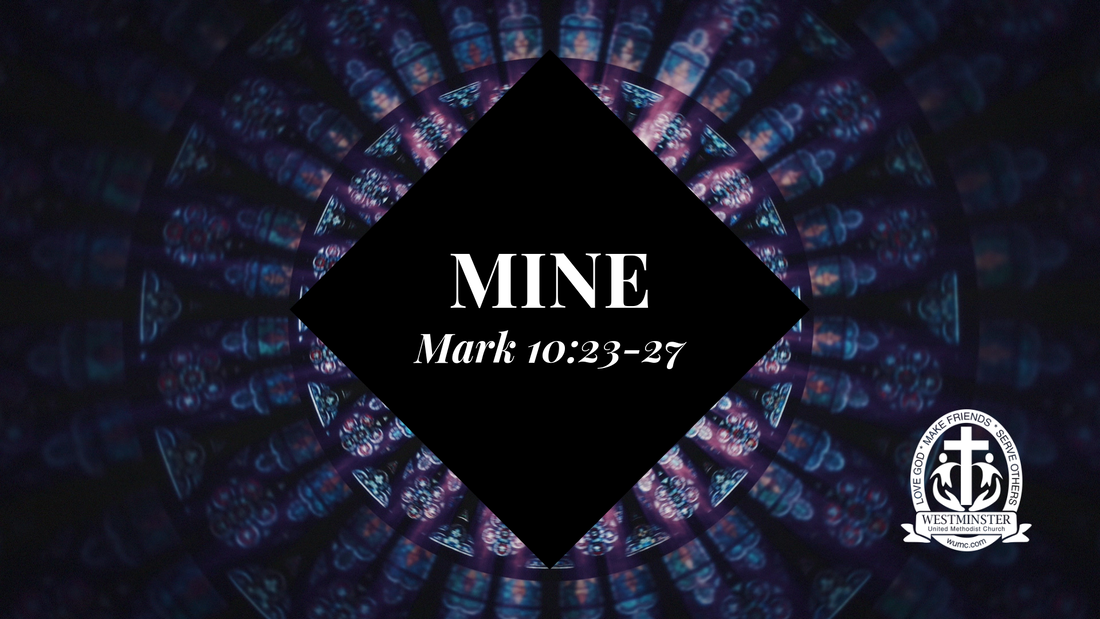
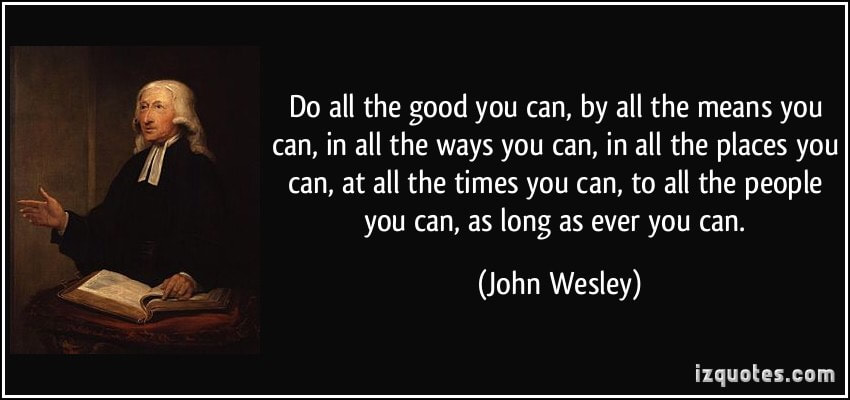
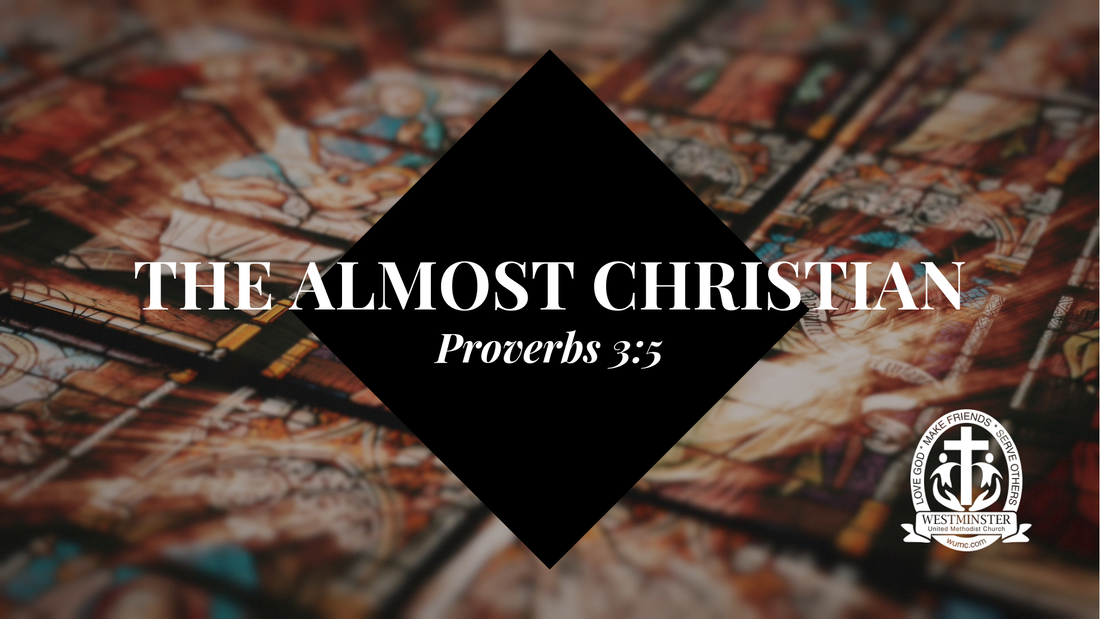
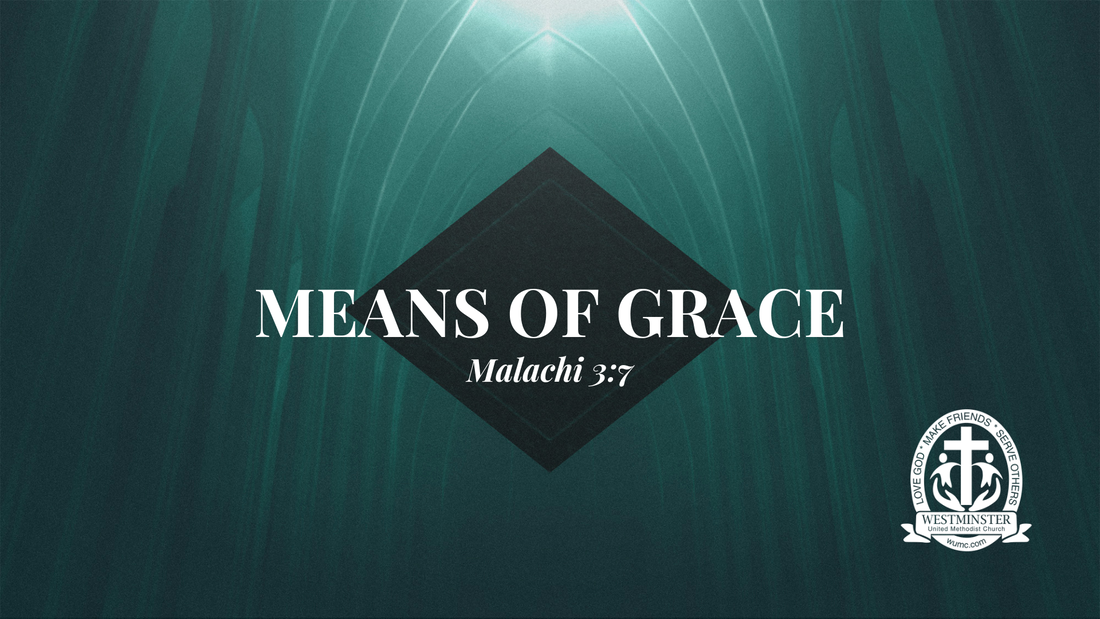
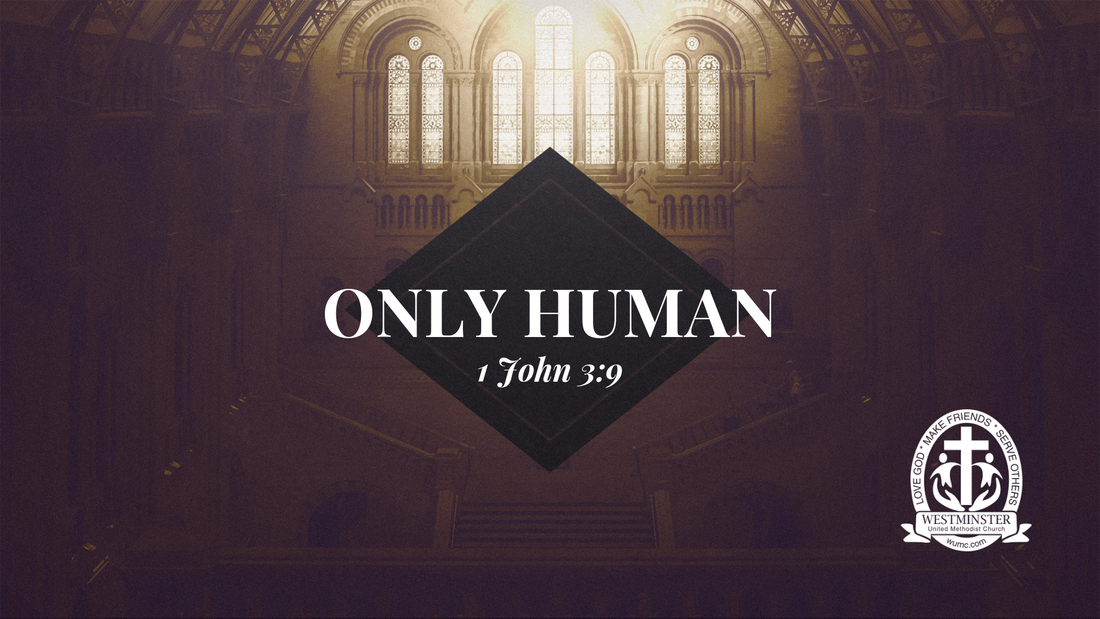
 RSS Feed
RSS Feed